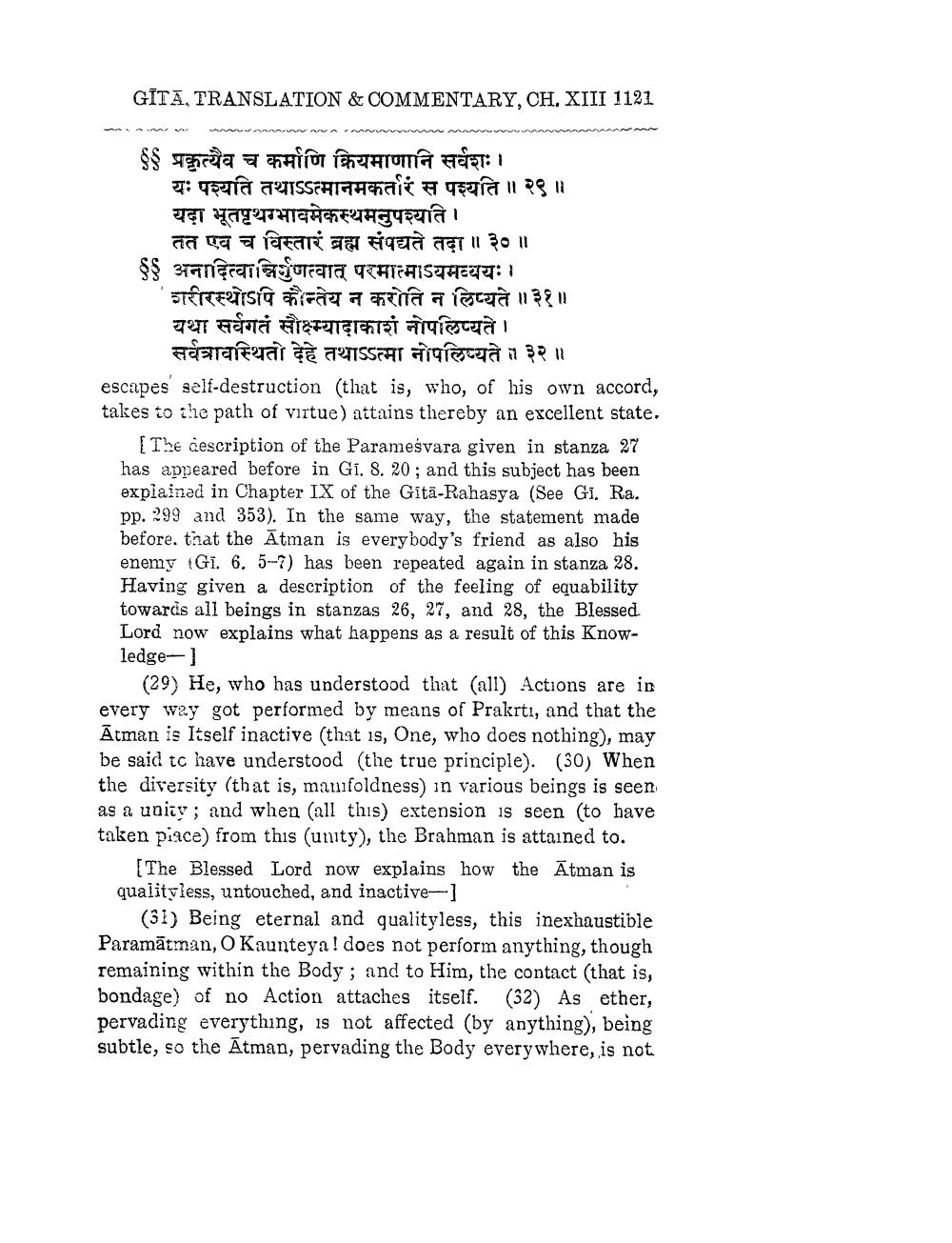________________
GITA, TRANSLATION & COMMENTARY.CH, XIII 1121
$$ प्रकृत्यैव च कर्माणि क्रियमाणानि सर्वशः।
यः पश्यति तथाऽऽत्मानमकर्तारं स पश्यति ॥ २९ ॥ यदा भूतपृथग्भावमेकस्थमनुपश्यति।
तत एव च विस्तारं ब्रह्म संपद्यते तदा ॥ ३०॥ $$ अनादित्वान्निर्गुणत्वात् परमात्माऽयमव्ययः।
शरीरस्थोऽपि कौन्तेय न करोति न लिप्यते ॥३१॥ यथा सर्वगतं सौम्यादाकाशं नोपलिप्यते।
सर्वत्रावस्थितो देहे तथाऽऽत्मा नोपलिप्यते। ३२॥ escapes self-destruction (that is, who, of his own accord, takes to the path of virtue) attains thereby an excellent state.
[The description of the Parameśvara given in stanza 27 has appeared before in Gi. 8. 20; and this subject has been explained in Chapter IX of the Gitā-Rahasya (See Gi. Ra. pp. 299 and 353). In the same way, the statement made before that the Ātman is everybody's friend as also his enemy (Gi. 6. 5-?) has been repeated again in stanza 28. Having given a description of the feeling of equability towards all beings in stanzas 26, 27, and 28, the Blessed. Lord now explains what happens as a result of this Knowledge-1
(29) He, who has understood that (all) Actions are in every way got performed by means of Prakrti, and that the Ātman is Itself inactive (that is, One, who does nothing), may be said tc have understood (the true principle). (30) When the diversity (that is, manifoldness) in various beings is seen as a unity; and when (all this) extension is seen (to have taken piace) from this (unity), the Brahman is attained to.
(The Blessed Lord now explains how the Ātman is qualityless, untouched, and inactive
(31) Being eternal and qualityless, this inexhaustible Paramātman, O Kaunteya! does not perform anything, though remaining within the Body; and to Him, the contact (that is, bondage) of no Action attaches itself. (32) As ether, pervading everything, is not affected by anything), being subtle, so the Ātman, pervading the Body everywhere, is not




